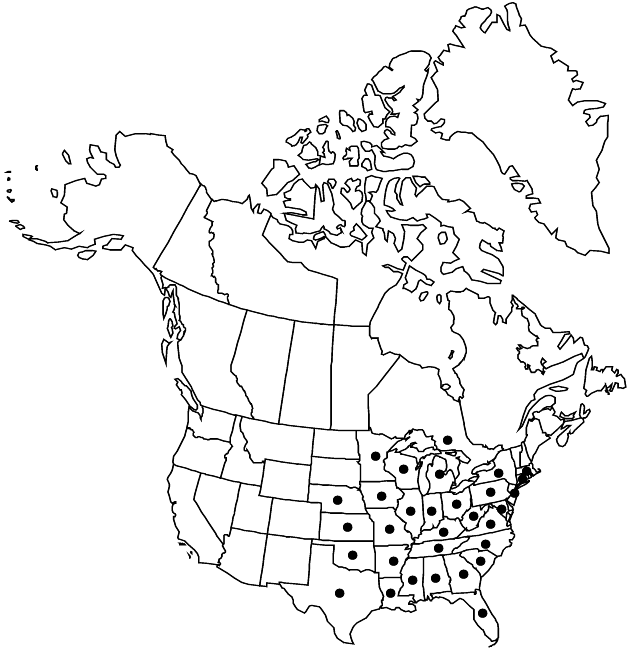Difference between revisions of "Eupatorium altissimum"
Sp. Pl. 2: 837. 1753.
imported>Volume Importer |
imported>Volume Importer |
||
| Line 51: | Line 51: | ||
|publication year=1753 | |publication year=1753 | ||
|special status=Endemic | |special status=Endemic | ||
| − | |source xml=https:// | + | |source xml=https://bitbucket.org/aafc-mbb/fna-data-curation/src/2e0870ddd59836b60bcf96646a41e87ea5a5943a/coarse_grained_fna_xml/V19-20-21/V21_1160.xml |
|tribe=Asteraceae tribe Eupatorieae | |tribe=Asteraceae tribe Eupatorieae | ||
|genus=Eupatorium | |genus=Eupatorium | ||
Latest revision as of 21:08, 5 November 2020
Perennials, 50–150+ cm. Stems (from short caudices or stout rhizomes) single, sparsely branched distally, pubescent throughout (nodes sometimes with galls). Leaves usually opposite (nodes often appearing leafy, lateral buds producing 2+ pairs of leaves); sessile or subsessile; blades strongly 3-nerved from bases, lance-elliptic to oblanceolate, 50–120 × 5–20 mm, bases ± cuneate, margins entire proximally, serrate distally, apices acuminate, faces puberulent or villous, gland-dotted. Heads in corymbiform arrays. Phyllaries 8–10 in 2–3 series, oblong, 1–4 × 0.5–1.5 mm, (bases tapered) apices rounded to acute (not mucronate), abaxial faces pubescent throughout. Florets 5; corollas 3–3.5 mm. Cypselae 2–3 mm; pappi of 30–40 bristles 3.5–4 mm. 2n = 20, 30, 40.
Phenology: Flowering Jul–Sep.
Habitat: Clearings, open woods, thickets
Elevation: 20–400 m
Distribution

Ont., Ala., Ark., Conn., Fla., Ga., Ill., Ind., Iowa, Kans., Ky., La., Md., Mass., Mich., Minn., Miss., Mo., Nebr., N.J., N.Y., N.C., Ohio, Okla., Pa., S.C., Tenn., Tex., Va., W.Va., Wis.
Discussion
Eupatorium altissimum occurs in sexual diploid populations in the Ozark region of Missouri and Arkansas, and as apomictic polyploids elsewhere throughout its range. It occurs almost exclusively on limestone soils, where it is often accompanied by (and sometimes misidentified as) Brickellia eupatorioides, which has 10-ribbed cypselae and plumose pappus bristles. Eupatorium altissimum hybridizes with E. serotinum.
Selected References
None.